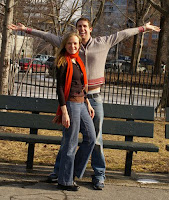Of course, not only are the girls in NYC going public and making noise this week. Check out my friend and colleague Alison Piepmeier, Director of the Women’s and Gender Studies Department at the College of Charleston, in an ABC news interview about the anti-abortion legislation passed this week in her state.
Read more about the scary legislation here.



